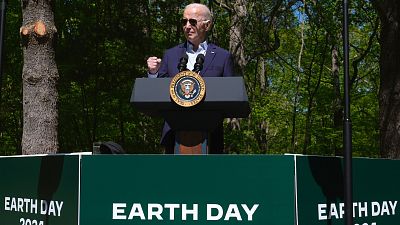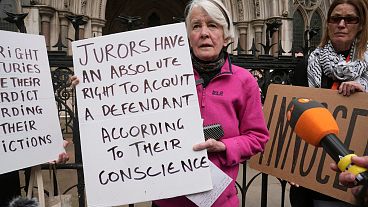"Glossing over these issues with a neatly packaged sustainability marketing campaign threatens the future of our planet."
Jessi Baker, MBE, founder and CEO of transparency tech company Provenance.org explains why businesses must expose their flaws in order to be honest about their environmental strategy.
Sustainability credentials are no longer a mere hygiene factor. With 79 per cent of shoppers changing their purchase preferences based on environmental concerns, green claims are now crucial to the health of your business in 2022 – a competitive advantage that many are already battling for.
But as the last 12 months have shown, many businesses are misfiring in their attempts to capitalise on the growing cohort of conscious shoppers. In Europe, we’ve seen big names in almost every sector publicly called out for greenwashing, including Danish Crown, Alpro, Adidas and Coca-Cola.
The Changing Markets Foundation found that 60 per cent of claims by UK and European fashion companies are misleading shoppers, while one British report found that 69 per cent of shoppers are confused by or don’t believe sustainability claims made by health and beauty companies.
Getting it wrong on green claims not only damages consumer trust, but also increasingly risks legal action.
Regulatory bodies across Europe are now turning their focus towards tackling deceiving environmental claims. From January 2022, businesses’ sustainability claims must comply with the UK Competition and Markets Authority’s (CMA) ‘Green Claims Code’, while the European Commission’s ‘Green Claims Initiative’ is currently establishing a policy framework which will leave no room for overblown or inaccurate eco claims.
But although the risks of greenwashing accusations are real, silence is not an option.
Companies looking to stay relevant in an age of climate crisis must make progress on their social and environmental impact, and communicate it effectively. So how can businesses avoid the greenwash trap in 2022?
5. Prove every claim
European regulators are united in their demands for clear substantiation of environmental claims. In 2022, businesses must support every claim with easily-accessible, clear evidence from their supply chain and, where possible, third-party verification.
To meet this requirement, businesses must ensure all evidence is based on accepted science and ask is evidence publicly available/can consumers verify the claims?
Providing this proof – and keeping it up to date – will require effective collaboration between marketing and sustainability teams, so the first step for many will be an organisational change.
4. Lean into technology
Sharing adequate proof and clarity around social and environmental claims poses a practical challenge for businesses: with limited real estate on packaging, how can they share all the information that’s required with shoppers?
What’s more, to truly help their customers live sustainably, businesses also have a duty to educate on social and environmental issues, which only compounds the need to rethink communications channels.
To maintain brevity and clarity, the CMA suggests that businesses embrace digital. In e-commerce, comprehensive evidence can be made easily accessible through clickable claims, whilst on-pack claims can be supported by inviting shoppers to explore the evidence via a QR code scan.
3. Tell the whole story of your product
What you don’t say about the impact of your product matters.
In 2022, I expect we’ll see more companies called out for cherry-picking positive claims that relate to a narrow aspect of a product’s impact.
To make sure you don’t meet this fate, focus on areas where your company has the biggest impact. You might be tempted to base your next campaign on a hero ingredient that accounts for 3 per cent of your environmental impact, but if 97 per cent of your impact comes from packaging, focus on the progress you can make there instead.
Telling the whole story of your impact doesn’t mean you should never make claims about a specific part of a product’s life-cycle, but it means you should make it very clear when you’re doing so.
2. Be clear about recyclability
New research confirms that, in the UK, plastic recyclability remains a top priority for citizens looking to live more sustainably. But the UN Environment Programme recently found that just 17 per cent of assessed labels give consumers quality information to make informed recycling and purchasing.
In 2022, businesses must clearly state which components of a product or packaging are recyclable, and provide clear, easily-accessible disposal instructions. With Extended Producer Responsibility legislation coming for British businesses by 2023, companies must answer not only to consumer demand, but legislation too.
The On Pack Recycling-Label – recognised by the UN Environment Programme as international best practice – is a great place to start. At Provenance, we’re also tackling inconsistencies between different borough councils by rolling out a new tool to help brands provide location-specific recycling instructions online and off-pack.
1. Don’t wait for perfection
When it comes to green claims, honesty – not perfection – is the goal.
To lead on the climate issue, businesses need to set an example that others can follow, and that means communicating about progress and, where relevant, mistakes.
Earlier this year, Vogue’s Bella Webb identified ‘brutal honesty’ as the new look for sustainable marketing – an approach whereby businesses are “admitting their flaws and eschewing the ‘sustainable’ label in a bid to build consumer trust and forgiveness”.
Spearheading the trend are brands like Ace & Tate, who shared a warts-and-all blog post in September detailing their shortcomings on sustainability, and GANNI, the fashion brand now delivering credible supply chain transparency.
I understand businesses’ reluctance to expose their flaws, but glossing over these issues with a neatly packaged sustainability marketing campaign not only threatens the future of our planet, but poses its own significant risk to consumer trust in their brand.





